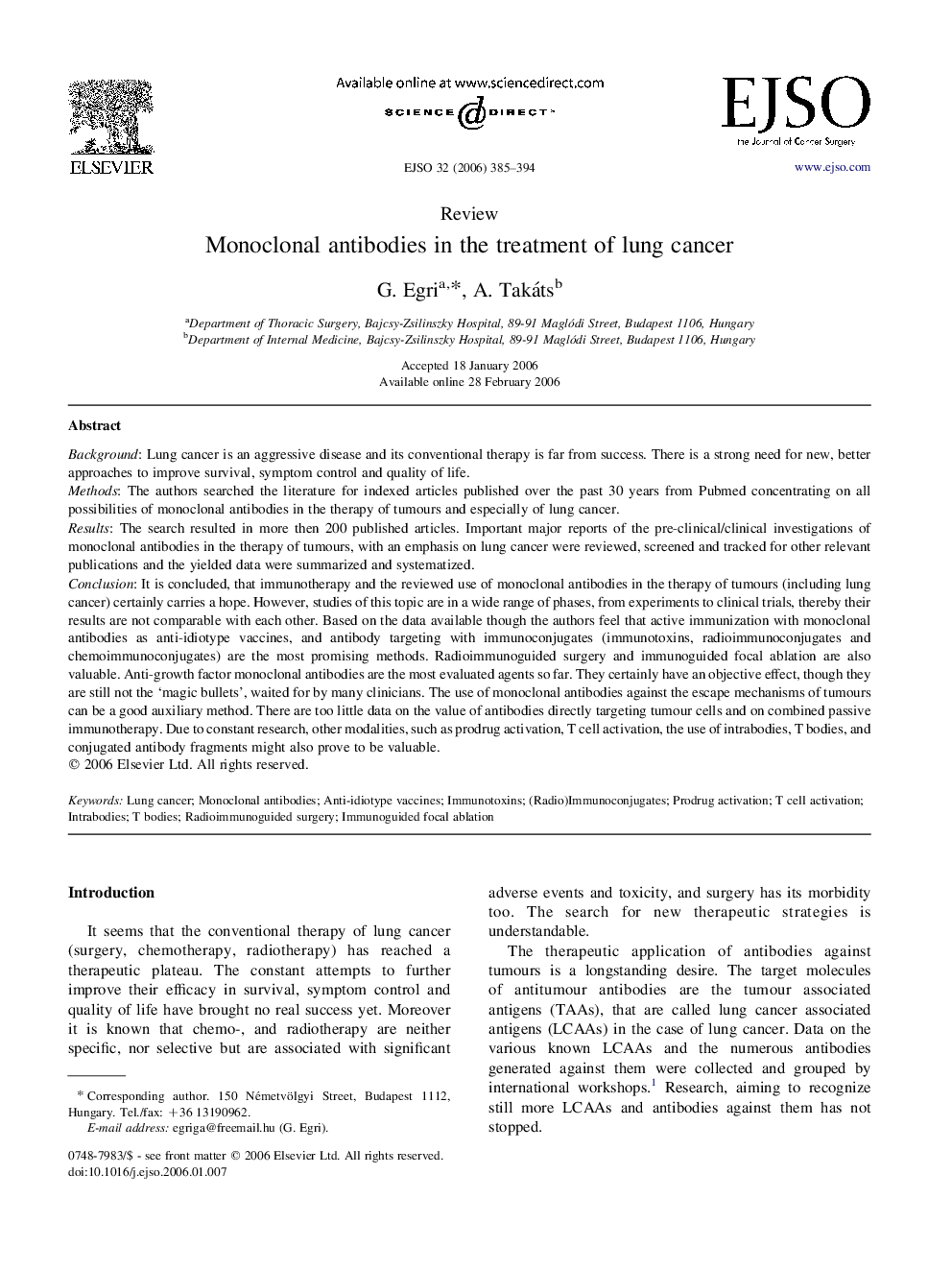| Article ID | Journal | Published Year | Pages | File Type |
|---|---|---|---|---|
| 3988301 | European Journal of Surgical Oncology (EJSO) | 2006 | 10 Pages |
BackgroundLung cancer is an aggressive disease and its conventional therapy is far from success. There is a strong need for new, better approaches to improve survival, symptom control and quality of life.MethodsThe authors searched the literature for indexed articles published over the past 30 years from Pubmed concentrating on all possibilities of monoclonal antibodies in the therapy of tumours and especially of lung cancer.ResultsThe search resulted in more then 200 published articles. Important major reports of the pre-clinical/clinical investigations of monoclonal antibodies in the therapy of tumours, with an emphasis on lung cancer were reviewed, screened and tracked for other relevant publications and the yielded data were summarized and systematized.ConclusionIt is concluded, that immunotherapy and the reviewed use of monoclonal antibodies in the therapy of tumours (including lung cancer) certainly carries a hope. However, studies of this topic are in a wide range of phases, from experiments to clinical trials, thereby their results are not comparable with each other. Based on the data available though the authors feel that active immunization with monoclonal antibodies as anti-idiotype vaccines, and antibody targeting with immunoconjugates (immunotoxins, radioimmunoconjugates and chemoimmunoconjugates) are the most promising methods. Radioimmunoguided surgery and immunoguided focal ablation are also valuable. Anti-growth factor monoclonal antibodies are the most evaluated agents so far. They certainly have an objective effect, though they are still not the ‘magic bullets’, waited for by many clinicians. The use of monoclonal antibodies against the escape mechanisms of tumours can be a good auxiliary method. There are too little data on the value of antibodies directly targeting tumour cells and on combined passive immunotherapy. Due to constant research, other modalities, such as prodrug activation, T cell activation, the use of intrabodies, T bodies, and conjugated antibody fragments might also prove to be valuable.
